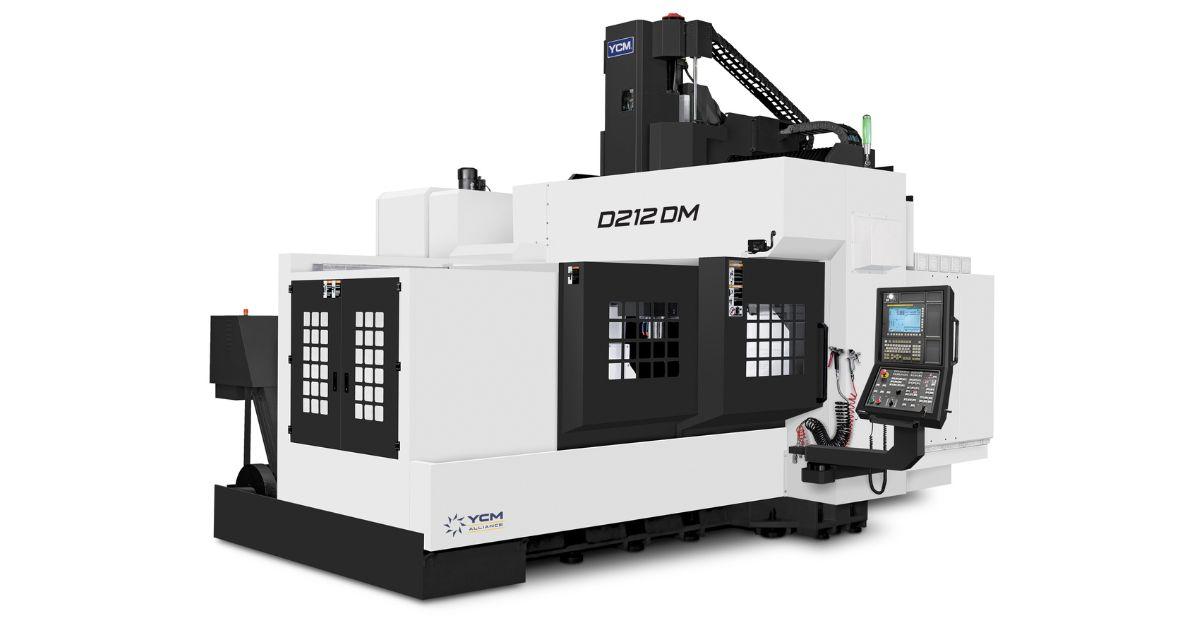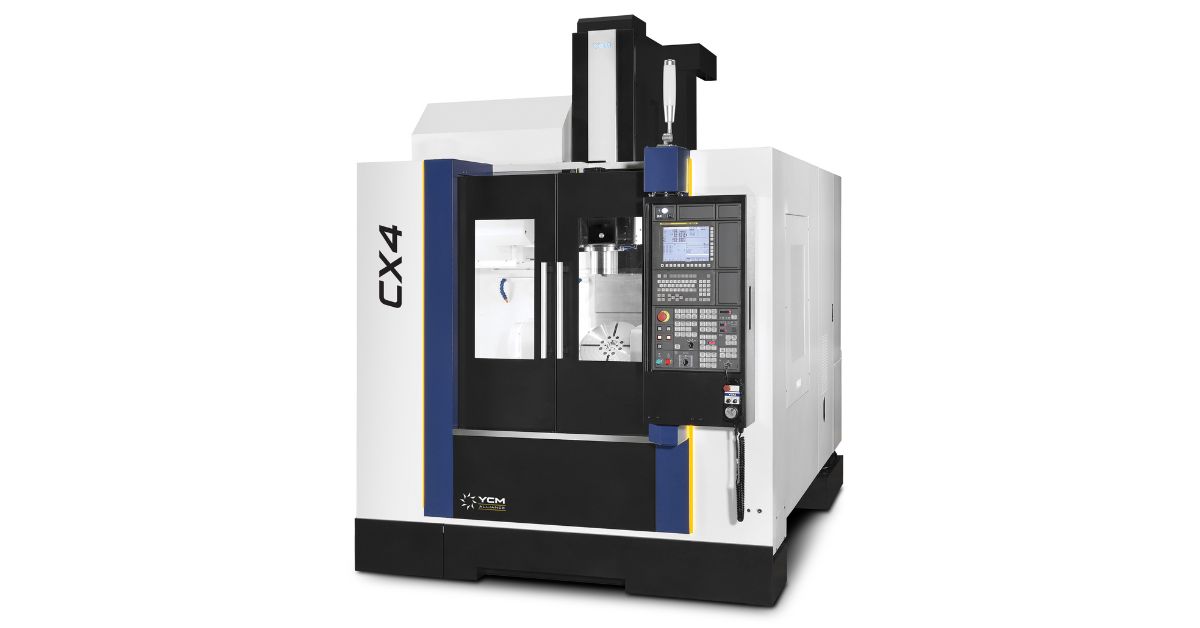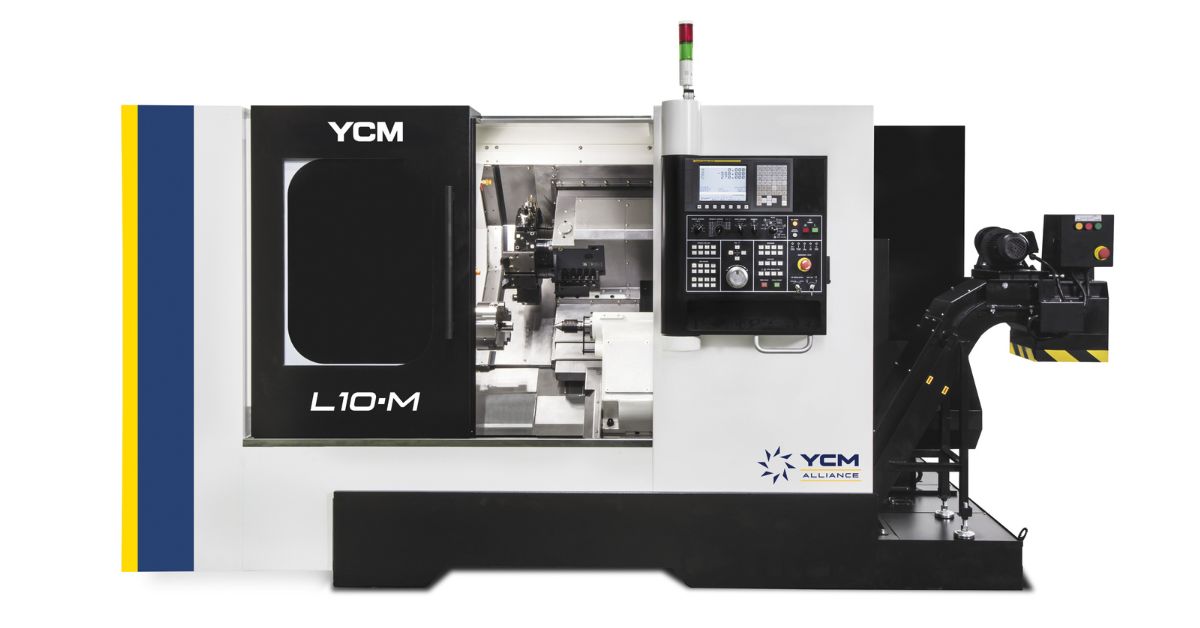How To Choose the Right CNC Machine for Your Needs

Computer numerical control (CNC) drives precision manufacturing across aerospace, automotive, medical, energy, and electronics. Selecting equipment aligned to material, tolerance, and throughput targets determines profitability and part quality. We’ll walk you through key considerations, machine types, and industry-specific fits so that you can choose the right CNC machine for your needs with confidence and measurable ROI.
Factors To Consider Before Choosing a CNC Machine
Project Requirements
Parts, materials, and tolerances define the machine class.
Hard alloys like titanium, Inconel, and hardened steels require high-torque spindles, rigid castings, and robust coolant delivery. Complex geometries benefit from 5-axis kinematics, dynamic look-ahead, and probing for in-process verification. Micro-scale features demand high-speed spindles, fine-step resolution, and thermal stability. Finally, surface finish goals (e.g., Ra 0.4 μm) will influence spindle type, toolpath strategy, and machine damping.
Throughput objectives also matter; unattended machining requires reliable tool monitoring, chip evacuation, and automation readiness.
Budget
Lifecycle economics extend beyond sticker price. A complete estimate should include:
- Base machine, options, and controller features; probing, coolant-through spindle, or 4th/5th axis
- Workholding, toolholders, cutters, bar feeders, pallet systems, and metrology
- CAD/CAM software, posts, DNC, simulation, and verification
- Electrical, air, dust or mist collection, coolant management, and floor prep
- Training, applications support, spares, and service contracts
Software
Controller and CAM compatibility drive programming speed and part accuracy. Consider control ecosystems like FANUC, Siemens, and Heidenhain, and how their conversational functions, macros, and probing cycles match your workflows. CAM toolchains should have options for your target machine. Simulation and digital twin capabilities help prevent collisions and optimize cycle times. Enterprise connectivity matters as well; look for support for data collection and ERP/MES integration.
Size and Space
Shop layout and utilities dictate what will actually fit and run efficiently. Evaluate footprint, work envelope, table travels, and door openings against your largest parts and fixtures. Check ceiling heights for gantry cranes or tall toolchangers. Keep in mind that chip conveyors, coolant tanks, and dust collectors will also require floor space and service access.
Electrical service should meet 3-phase voltage and amperage requirements. Compressed air CFM and quality, as well as HVAC for thermal stability, often go overlooked, but they also directly affect accuracy and uptime.
Support and Training
Uptime relies on responsive partners and prepared teams. Validate:
- Service response times, spare parts availability, and remote diagnostics capabilities
- Applications engineering, operator training, and process development resources
Maintenance
Routine care preserves accuracy and reduces unplanned downtime. Plan for lubrication schedules, coolant concentration control, filtration, and cleaning to keep ways, ballscrews, and spindles healthy. Periodic laser calibration, ballbar analysis, and alignment checks sustain geometric tolerances. High-duty operations benefit from predictive maintenance data and spindle health monitoring. Consider mean time between failures, consumable costs, and the complexity of user-level service tasks.
Industry Standards and Compliance
Regulatory and quality frameworks may influence machine selection and documentation. Safety and electrical compliance can involve CE, UL, and NFPA 79. Validation and traceability in medical markets align with ISO 13485 and FDA 21 CFR Part 820. Aerospace often requires AS9100 processes, tight PPAP-like documentation, and robust gage R&R. ITAR or CMMC may require specific cybersecurity measures. Machine performance verification against ISO 230 or ISO 10791 provides objective accuracy benchmarks.

Different Types of CNC Machines
CNC Mills
Vertical and horizontal machining centers handle prismatic parts across metals and plastics. Three-axis mills tackle most work; adding a 4th or 5th axis reduces setups and improves surface quality on complex contours. Key specs include spindle power and speed, HSK/CAT/BT taper, rapid rates, thermal compensation, and probing. Applications range from engine components to molds, fixtures, and structural aerospace parts.
CNC Lathes
Turning centers produce round parts efficiently. Capabilities grow with live tooling, Y-axis, sub-spindles, and automatic bar feeders. Chuck size, through-spindle bore, and turret configuration determine part family fit. You may also want to look for mill-turn platforms, which allow for complete machining in one setup, improving concentricity and cycle time for shafts, connectors, and medical implants.
CNC Routers
Routers excel in wood, plastics, foams, composites, and soft metals like aluminum. Large-format tables, vacuum hold-down, and dust extraction support panelized work and nested parts. Routers are ideal for signage, composite layups and consumer product prototypes where speed takes priority.
CNC Plasma Cutters
Plasma systems cut conductive metals quickly, especially mild steel. Expect wider kerf and heat-affected zones versus laser or waterjet. They excel in fabrication, structural steel, and heavy equipment parts where throughput and cost efficiency outweigh ultra-fine precision.
CNC Laser Cutters
Fiber and CO2 lasers deliver high-speed sheet processing with minimal HAZ and tight kerf control. Fiber lasers shine on metals, including stainless steel and aluminum. Applications include enclosures, brackets, and precision sheet components in electronics and automotive.
CNC Waterjet Cutters
Abrasive waterjets cut virtually any material without thermal distortion. Thick plate, stone, glass, and composites benefit from clean edges and maintained material properties. Tolerances typically trail laser and milling but remain strong for many industrial needs.

Selecting the Right CNC Machine for Your Industry
Aerospace Industry
Programs demand tight tolerances, superior surface integrity, and documented process control. Rigid 5-axis VMCs and HMCs with high-torque spindles, thermal stability, and probing handle titanium, nickel alloys, and aluminum structures. Mill-turn platforms simplify complex housings, while waterjets and routers support composite kits and honeycomb cores.
Automotive Industry
High-volume parts require short cycle times, repeatability, and automation. Flexible VMC cells with pallet pools, high-speed lathes with gantry loaders, and laser cutting for sheet metal dominate. Integrated probing, in-line gaging, and efficient chip management drive process capability and OEE improvements.
Medical Industry
Many implants, instruments, and devices involve micro-features and biocompatible materials. Swiss-type lathes, 5-axis micromachining centers, and ultra-precise workholding support ±0.0002 in tolerances and superior finishes. Validation support, clean-room compatible options, and robust documentation are essential.
Energy Industry
Oil and gas, renewables, and power generation need machines for large, heavy parts and tough materials. Big-bore lathes, horizontal boring mills, and 5-axis centers handle valves, housings, and turbine blades. Waterjet and plasma tackle thick plate and wear-resistant alloys with efficient edge preparation.
Electronics Industry
Thin sheet, small housings, and precision brackets benefit from fiber lasers and high-speed mills. Routers support plastics and composites, while mill-turn centers handle connectors and pins. ESD-safe setups, burr control, and micro-level accuracy ensure assembly success.
Move Confidently From Spec to Production
Clarity on parts, materials, tolerances, and throughput guides machine selection. Matching machine type and configuration to industry demands ensures a durable edge and scalable capacity.
Reliable partners bring the training, applications expertise, and lifecycle support you need to move forward with confidence. The YCM Alliance connects manufacturers with resources that reduce risk and accelerate ROI across industries.
Partnering with trusted machine tool distributors opens the door to training, support, and continuous improvement, keeping your shop competitive. We’re here to help you choose the right CNC machine for your needs and meet your goals with robust software, service, and standards compliance.